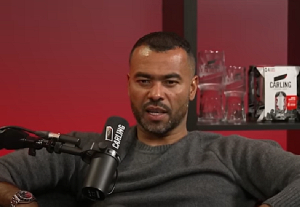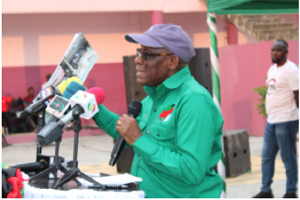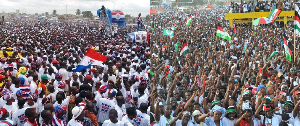Member of Parliament for North Tongu, Samuel Okudzeto Ablakwa is demanding drastic reduction and parliamentary investigations into the US$150 as cost of COVID-19 antigen test at the Kotoka International Airport.
In a statement on the floor of Parliament on Friday, January 29, 2021, Mr Ablakwa said other countries run the same test at a far cheaper cost than Ghana.
Comparing Ghana to other countries, Mr Ablakwa said: “Malawi charges $25, Malaysia $28, India (Goa Airport) $28, India (Veer Savarkar International Airport) $7, UK (Heathrow Airport, London) $70. What is even more striking is the realisation that the overwhelming majority of countries with the more superior PCR tests at their airports have charges that are shockingly far cheaper than Ghana’s ANTIGEN test cost. A few references: Togo charges $80 for a PCR test, Sierra Leone charges $80, Senegal charges $75, Rwanda charges $60, Djibouti charges $28, Germany charges $70 and Turkey has only a $16 charge for a PCR test.”
He further argued that “At the Fifty-Eight Ordinary Session of the Authority of Heads of State and Government of ECOWAS held on the 23rd of January 2021 and chaired by the President Nana Addo Dankwa Akufo-Addo, the performance of member states in the pandemic fight was reviewed. During this review, the harmonisation of cross-border movements of persons and goods was approved. As part of this approval, it was agreed that PCR testing for travel within the sub-region will be capped at a maximum of $50."
“With this new development, it is my considered view that the $150 cost of antigen testing at Kotoka International Airport has become even more untenable. It cannot be right that the cost of antigen testing will be three times more expensive than the cost of the more sensitive and superior PCR test. I further submit that a look at the average wholesale cost of antigen tests on the biomedical science market is between $4.58 and $12. One may wonder how the cost to the end-user will be approximately 12 times the wholesale cost should the upper value of this range be used.”
Read Mr Ablakwa’s full statement before Parliament below:
STATEMENT BY SAMUEL OKUDZETO ABLAKWA, MP FOR NORTH TONGU ON THE PUNITIVE US$150 COVID-19 ANTIGEN TEST AT THE KOTOKA INTERNATIONAL AIRPORT AND ITS NEGATIVE IMPACT ON GHANA’S COVID-19 FIGHT
Right Honourable Speaker, I am grateful to you for the opportunity to make this statement on what is undoubtedly of considerable public importance, particularly to the Ghanaian travelling public.
Ghana’s COVID-19 Antigen Test which cost a whopping $150 at the Kotoka International Airport remains one of the most expensive if not the most expensive Airport COVID-19 Antigen Test anywhere in the world. This amount which is punitive and retrogressive is leading to widespread agitation and incessant appeals from the general public for an urgent intervention especially by this august House.
Mr. Speaker, there is hardly a day passing without our constituents, Ghanaians in the diaspora and members of the general public reaching out to us on the cut-throat cost which they consider to be most unbearable – a view I strongly share and identify with. The public outrage has continued to play out on many media outlets.
Mr Speaker, in the wake of the current COVID-19 pandemic, one of the vital tools for risk minimisation and to slow down spread of the virus, has been the testing and isolation of infected people. According to the World Health Organization, the surest way to overcome this pandemic is to TEST, TRACE and ISOLATE.
At the peak of the first wave, most countries closed their borders to ensure that infections were not introduced through travel. It soon became apparent that if steps were not taken for countries to open up, the aviation and tourism industries were going to be badly damaged, though other sectors of the global economy were not going to be left out too.
Most countries, therefore, came up with a requirement for travellers to obtain a negative Polymerase Chain Reaction (PCR) test for SARS-COV-2, 72-hours before they could board flights. As further scientific evidence emerged, it became clear that PCR by itself was not robust enough because the procedure can take up to 24 hours for results to be produced, passengers need to be given up to 72 hours to get the test done, and there is potential for new infections to occur or previously undetectable infections to show up in the time lag between testing and traveling. Following the development of newer more rapid tests, countries including Ghana reviewed their protocols to ensure that an antigen test was undertaken on arrival. This was to ensure that any latent infections that were missed by the earlier PCR test were identified and isolated.
Being more sensitive and elaborate, the PCR test must be run within a laboratory setting for six hours (or more) with expensive equipment and requisite human resources. This makes it relatively more expensive than any of the other forms of COVID tests available. At the start of the pandemic, the average cost of PCR was between $60 and $100. This has continued to drop with the current cost ranging between $16 and $100.
Mr. Speaker, the ANTIGEN test, which is what is sanctioned by the Akufo-Addo Administration at the Kotoka International Airport, however, is a point of care test that is simple to administer according to the experts. They indicate that it relies on a fluorescent device or a simple cartridge like a home pregnancy test kit and is priced at between $4.58 and $12 on the international market. At the time when Ghana reopened its borders on the 1st of September 2020 and introduced the requirement for antigen testing, the stated price at the airport of $150 was justifiably considered by many (who know that this technology is less sensitive and cheaper than PCR) as expensive. However, Government officials mounted a spirited defence and have since September last year maintained the $150.00 charge per traveller.
Mr. Speaker, it is instructive to note that my research reveals that other countries run the ANTIGEN test at a far cheaper cost than Ghana. Respectfully, with your indulgence, a few examples will suffice: Malawi charges $25, Malaysia $28, India (Goa Airport) $28, India (Veer Savarkar International Airport) $7, UK (Heathrow Airport, London) $70. What is even more striking is the realisation that the overwhelming majority of countries with the more superior PCR tests at their airports have charges that are shockingly far cheaper than Ghana’s ANTIGEN test cost. A few references: Togo charges $80 for a PCR test, Sierra Leone charges $80, Senegal charges $75, Rwanda charges $60, Djibouti charges $28, Germany charges $70 and Turkey has only a $16 charge for a PCR test.
Mr. Speaker, at the Fifty-Eight Ordinary Session of the Authority of Heads of State and Government of ECOWAS held on the 23rd of January 2021 and chaired by the President Nana Addo Dankwa Akufo-Addo, the performance of member states in the pandemic fight was reviewed. During this review, the harmonisation of cross-border movements of persons and goods was approved. As part of this approval, it was agreed that PCR testing for travel within the sub-region will be capped at a maximum of $50.
With this new development, it is my considered view that the $150 cost of antigen testing at Kotoka International Airport has become even more untenable. It cannot be right that the cost of antigen testing will be three times more expensive than the cost of the more sensitive and superior PCR test. I further submit that a look at the average wholesale cost of antigen tests on the biomedical science market is between $4.58 and $12. One may wonder how the cost to the end-user will be approximately 12 times the wholesale cost should the upper value of this range be used.
Mr Speaker on the 21st of January, 2021; the Kingdom of Netherlands indicated that with effect from midnight of the 23rd of January, 2021 travellers to that country will require an ANTIGEN test in addition to the 72-hour PCR test performed within 4-hours of boarding a flight to that country. Being a member of the Schengen Area and European Union, it is likely that other countries in these group will introduce similar requirements. Documents available to me indicate that the company operating the testing regime at Kotoka will be undertaking this testing too at a cost of $150 (some GHC850 at current exchange). According to a notice by the airline (KLM), travellers can opt to take the ANTIGEN test at Akai House Clinic on Sixth Circular road in Cantonments for GHC 250. The question is, why maintain this punitive $150 when the test can be run at a much lower cost elsewhere in Ghana, and why is the ANTIGEN test not being made more widely available?
Mr. Speaker, this if not checked could make travel to Ghana less attractive in this era of global economic downturn. As apart from the routine airline travel cost, passengers will require an average of $350 - $600 per person, depending on where the tests are carried out, for COVID-19 testing just to make a return journey to Ghana. For a family of five, this will translate to $1750 to $3000 for COVID tests alone.
Reports are also emerging about how some travellers are forced to collude with officials at the airport in order to beat the system due to the exorbitant charges. The Ghana Medical Association has had cause in a recent statement to draw attention to loopholes at the airport because of this phenomenon which is leading to further importation and spread of COVID-19. This is therefore rendering the entire testing policy at the airport counterproductive and clearly putting all Ghanaians at high risk as our case numbers continue to rise sharply.
Mr. Speaker, equally troubling is the regrettable fact that this $150 exorbitant charge was not brought to this House for consideration and approval as the Fees and Charges (Miscellaneous Provisions), 2018 (Act 983) demands. There are also fundamental concerns about the lack of transparency and alleged breach of due process not limited to flagrant violations of the Health Institutions and Facilities Act, 2011 (Act 829) when a newly registered entity known as Frontiers Healthcare Services was awarded the contract to carry out the ANTIGEN tests.
Frontiers Healthcare Services is said to be beneficially controlled from the tax haven of the Island of Dominica. Civil Society Organisations such as Imani have publicly raised alarm about these rather opaque arrangements.
Mr. Speaker, I believe the time has come for this House to carry out its Constitutional mandate of oversight by investigating all these matters as a matter of urgency. It is also absolutely imperative that we initiate concrete steps to cause a drastic reduction of Ghana’s ANTIGEN test cost to align with international best practice. The punitive and retrogressive cost is greatly undermining the fight against COVID-19. May it not be said that this House sat idle by as a few appeared to engage in supernormal profiteering at a time when many lives are being lost to this global health crisis.
Mr. Speaker, the government has also amended its original programme of offering free COVID tests except in very limited circumstances of walk-in requests based on ill health, contact tracing and exposure thus according to a 27th January, 2021 directive from the Ministry of Health signed by Acting Chief Director, Kwabena Boadu Oku-Afari; and so virtually all the positive tests we are recording now are due to people who pay the GHC300 – GHC600 to get tests done. We are thus missing a broad swathe of Ghanaians who cannot afford the tests, and so we cannot get a handle of the problem until we can measure it. Unless ANTIGEN tests which are cheaper and faster, are deployed widely across the country and made free in most cases to measure the scale of COVID in Ghana, we will be groping in the dark, for it is trite that: WHAT DOESN’T GET MEASURED, DOESN’T GET MANAGED.
Finally, Mr. Speaker, it is my fervent hope that the Executive will be more audacious and ingenious including deploying the use of advanced skillful diplomatic negotiations in securing vaccines much sooner than the 6-month timetable earlier advertised as other African countries such as Seychelles have been able to achieve. The international community must understand that WE FIRST and not ME FIRST is the only solution to this pandemic.
I convey deepest condolences to all those grieving on the loss of loved ones and wish all infected a speedy recovery. May we all continue to do our bit in a determined quest to defeat this ravaging virus.
I thank you, Rt. Hon. Speaker.
General News of Saturday, 30 January 2021
Source: classfmonline.com

















